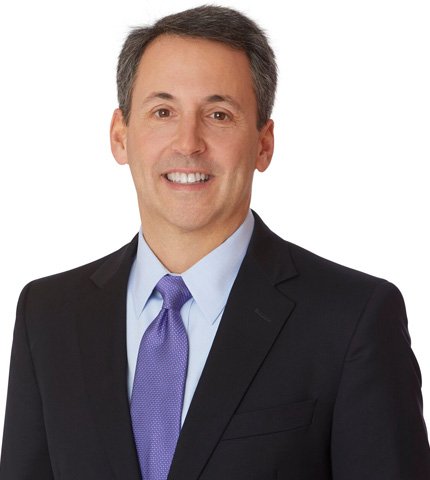I Wasn’t Wearing a Helmet – Will It Affect My Case?
Wearing a Helmet Helps Prevent Injuries in Motorcycle and Bicycle Crashes
Just as drivers and passengers in motor vehicles must wear seat belts to help protect against injury, so must motorcyclists wear helmets while riding. Riders of non-motorized bicycles have fewer restrictions, but with the increased incidence of vehicle-bicycle crashes, most experts recommend wearing one. Does neglecting to wear a helmet decrease your chances of receiving compensation in an injury accident?
At Denlea & Carton, we have experienced legal professionals dedicated to recovering significant compensation for victims of accidents. We have obtained over $100 million in settlements for our clients in White Plains, NY and surrounding communities. Contact us at (914) 368-7168 to schedule your free, no-obligation consultation.
Why Motorcyclists and Cyclists Should Wear Helmets
When properly worn, helmets can significantly reduce the severity of a head injury and death for motorcyclists involved in a motor vehicle accident. According to the U.S. General Accounting Office, motorcyclists who wear helmets have a 73% lower fatality rate if they are hit by a vehicle. This protection also limits the amount of medical care needed following a crash.
Various studies on the protections afforded to cyclists are less clear. Helmets protect bicyclists when they fall off bikes and hit their heads on the pavement, but wearing a helmet in traffic may have the opposite effect. Many motorists believe that cyclists who wear helmets will always survive a mishap, so they can become careless when driving around them.
What are New York’s Laws Regarding Helmets?
All motorcyclists and their passengers must wear a certified helmet when riding on their machines. Motorcycle helmets must meet the following requirements:
• Approved by the U.S. Department of Transportation (DOT)
• Weighing at least three pounds
• Continuous, curved protective surface protecting the entire face
• No rigid projects within the helmet shell
• No projects beyond.02 inches from the outer surface
• Polystyrene inner lining that is at least one inch thick
• Peripheral vision clearance to ensure complete visibility
Rules for bicyclists are less stringent. The New York General Assembly indicates that all cyclists under age 14 must wear an approved helmet. Recommendations focus more on bicycle riding safety tips. However, a state brochure on bicycle safety tips indicates that all cyclists should wear helmets. Bicyclist helmets should have these characteristics:
• Helmets should meet either the U.S. Consumer Product Safety Commission (CPSC) or the American Society for Testing and Materials (ASTM) standards
• Fit comfortably and stay in place
• Have adjustable fit pads or rings
• Have adjustable straps
• Chin straps should be snug enough to keep the helmet in place during a crash
Helmets Don’t Protect Against All Injuries
Accidents involving motorcyclists and bicyclists can often be complex, involving many parts of the body. Helmets will only protect the head and neck. Severe injuries can occur when a 4,000-lb.-plus car, SUV, or truck comes into contact with a motorized or non-motorized two-wheeled vehicle. Among the injuries victims can suffer are:
• Traumatic brain and spinal cord injuries
• Burns
• Amputations
• Nerve damage
• Anxiety, depression, and post-traumatic stress disorder
How Will Not Wearing a Helmet Affect My Injury Case?
If you sustained severe injuries in an accident, you can still file a personal injury lawsuit, especially if you have injuries to other parts of your body. However, you should bear in mind that if you neglect to wear a helmet while riding your motorcycle, the courts will most likely find you irresponsible and in violation of the state’s motorcycle helmet law.
This can have a detrimental effect on your injury claim and reduce the compensation you receive, especially if your injuries primarily involve your head and neck. The effect of not wearing a helmet when riding a bicycle is less clear as the law doesn’t require older riders to wear one.
How New York’s Comparative Negligence Rule Affects Compensation
Under the state’s pure comparative negligence rule, even if you contributed partially to the accident, you remain eligible to file a compensation claim, so you can still bring about a lawsuit if you weren’t wearing a helmet.
If you are found responsible for some of the accident, you won’t receive all the compensation you seek. For example, if the courts deem you responsible for 40% of the accident, you’ll only receive compensation equal to 60% of your original claim.
Serious Injuries Require Substantial Compensation
Even if you are partially responsible for an accident, an experienced accident attorney may be able to get you full compensation. Even if you were not wearing a helmet, they may be able to prove that wearing a helmet would not have protected you against your sustained injuries. Serious injuries require extensive rehabilitation and sometimes result in permanent disability.
Our compassionate and experienced personal injury attorneys at Denlea & Carton can help you get the compensation you deserve. Contact our office today at (914) 368-7168 to get a free consultation.

















